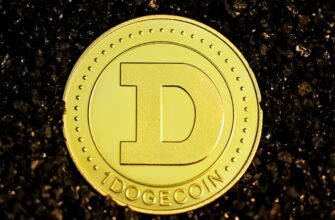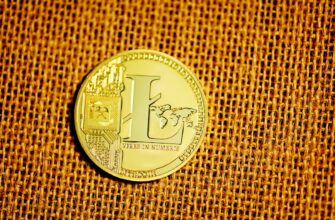- Crypto Kwon: The Rise, Fall, and Legal Saga of Terra’s Do Kwon
- Who Is Crypto Kwon? The Man Behind Terra
- The Terra-Luna Ecosystem Explained
- The $40 Billion Collapse: How Crypto Kwon’s Empire Fell
- Legal Fallout: Interpol Red Notices and Extradition Battles
- Lessons From the Crypto Kwon Saga
- Crypto Kwon FAQ: Key Questions Answered
- What is Crypto Kwon’s current status?
- Did Do Kwon profit from Terra’s collapse?
- Can Terra (LUNA) recover?
- What does this mean for crypto regulation?
- Are algorithmic stablecoins dead?
Crypto Kwon: The Rise, Fall, and Legal Saga of Terra’s Do Kwon
The name “Crypto Kwon” became synonymous with both cryptocurrency innovation and catastrophic failure following the 2022 Terra-Luna collapse. Do Kwon, the South Korean founder behind the Terra blockchain, rose to fame as a crypto visionary before facing international legal battles. This article explores Kwon’s journey, the $40 billion ecosystem crash, and ongoing implications for the crypto industry.
Who Is Crypto Kwon? The Man Behind Terra
Do Kwon, often referred to as “Crypto Kwon,” co-founded Terraform Labs in 2018. A Stanford computer science graduate, he previously created the failed stablecoin project Basis Cash. His ambitious vision for Terra (LUNA) and its algorithmic stablecoin UST promised:
- Decentralized financial infrastructure
- A self-stabilizing currency ecosystem
- High-yield savings via Anchor Protocol (up to 20% APY)
- Cross-chain payment solutions
By early 2022, Kwon’s projects reached a combined market cap exceeding $60 billion, making him a crypto celebrity.
The Terra-Luna Ecosystem Explained
Terra’s core innovation was its dual-token mechanism:
- UST (TerraUSD): Algorithmic stablecoin pegged to $1
- LUNA: Governance token absorbing price volatility
The system relied on arbitrage: when UST dipped below $1, users could burn it for $1 worth of LUNA, theoretically restoring the peg. This model faced extreme stress during market turbulence in May 2022.
The $40 Billion Collapse: How Crypto Kwon’s Empire Fell
In May 2022, UST lost its dollar peg amid massive withdrawals from Anchor Protocol. The death spiral unfolded rapidly:
- May 7: $2 billion UST withdrawn from Anchor
- May 9: UST depegs to $0.85
- May 12: LUNA crashes 99.9% in 72 hours
- May 13: Terra blockchain halted twice
The collapse erased $40+ billion in value, triggering a crypto winter and regulatory crackdowns worldwide.
Legal Fallout: Interpol Red Notices and Extradition Battles
Kwon faces charges across multiple jurisdictions:
- South Korea: Fraud, capital markets law violations
- United States: Securities fraud, wire fraud, conspiracy
- Singapore: Investor protection investigations
After months as a fugitive, Kwon was arrested in Montenegro in March 2023 attempting to fly to Dubai with forged documents. His extradition remains contested between the U.S. and South Korea as of 2024.
Lessons From the Crypto Kwon Saga
The Terra collapse reshaped crypto regulations and investor perspectives:
- Algorithmic stablecoin risks: Highlighted structural vulnerabilities in unbacked stablecoins
- Yield sustainability: Unsustainable APY rates as red flags
- Regulatory urgency: Accelerated global crypto legislation (e.g., EU’s MiCA)
- Due diligence imperative: Increased scrutiny of “too good to be true” crypto projects
Crypto Kwon FAQ: Key Questions Answered
What is Crypto Kwon’s current status?
Do Kwon remains in Montenegro pending extradition. In June 2024, he was sentenced to 4 months for document forgery while courts decide whether he’ll face trial in the U.S. or South Korea.
Did Do Kwon profit from Terra’s collapse?
Prosecutors allege Kwon cashed out $100 million before the crash. South Korean authorities froze $176 million in assets linked to him and Terraform Labs.
Can Terra (LUNA) recover?
Terra 2.0 (LUNA) launched in May 2022 but trades at <1% of original LUNA's peak value. The ecosystem has largely migrated to other chains.
What does this mean for crypto regulation?
The collapse spurred stricter stablecoin rules, including requirements for reserves and transparency. The U.S. SEC now aggressively pursues “crypto asset securities” cases.
Are algorithmic stablecoins dead?
While projects like Frax Finance continue, most new stablecoins use fiat or crypto collateral. Major players like Tether and USDC dominate the market.
—
The Crypto Kwon saga remains a cautionary tale about unchecked innovation, regulatory gaps, and the volatile nature of cryptocurrency markets. As legal proceedings continue, the industry grapples with balancing technological potential against investor protection – a tension that will define crypto’s next chapter.







